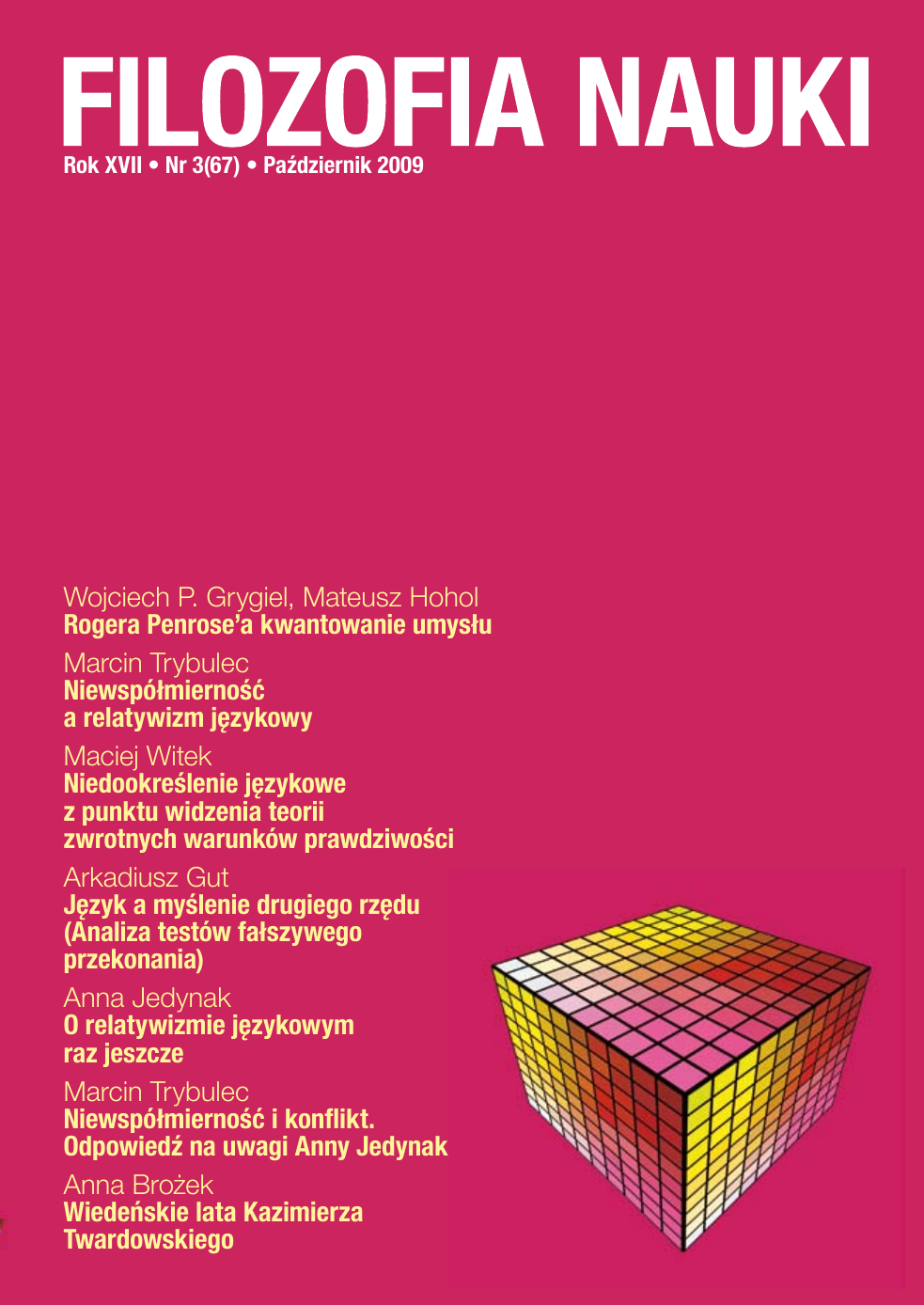Język a myślenie drugiego rzędu (Analiza testów fałszywego przekonania)
Słowa kluczowe:
language, mind, thought, second order thinking, false belief task, mindreadingAbstrakt
The paper is focused on the relationship between thought and language. One of the current hypotheses claims that public language is responsible for our ability to display second order cognitive dynamics. In order to investigate the alleged role of language in our ability to think about thoughts philosophers and psychologists have concentrated on the attribution of thought to another people i.e. on "mind reading" abilities. Evaluating series of experimental results (for example: The false belief task) some of them have put forward a strong hypothesis that capacity to attribute a thought to another people deploys a symbolic representations made available by the language faculty. Making this claim they have attempted to support the general idea that language is regarded as a necessary precursor for second order cognitive dynamics, i.e. the acquisition of specific language constructions fosters our ability to think consciously of our thoughts. In the paper (in opposition to this strong hypothesis) the moderate view is developed. According to the moderate view language is not considered as a devise that re-program our cognitive abilities and creates a new kind of cognition (second order thinking) but is rater an external resource that may scaffold our higher order cognitive abilities.















 Filozofia Nauki | ISSN 1230-6894 | e-ISSN 2657-5868
Filozofia Nauki | ISSN 1230-6894 | e-ISSN 2657-5868